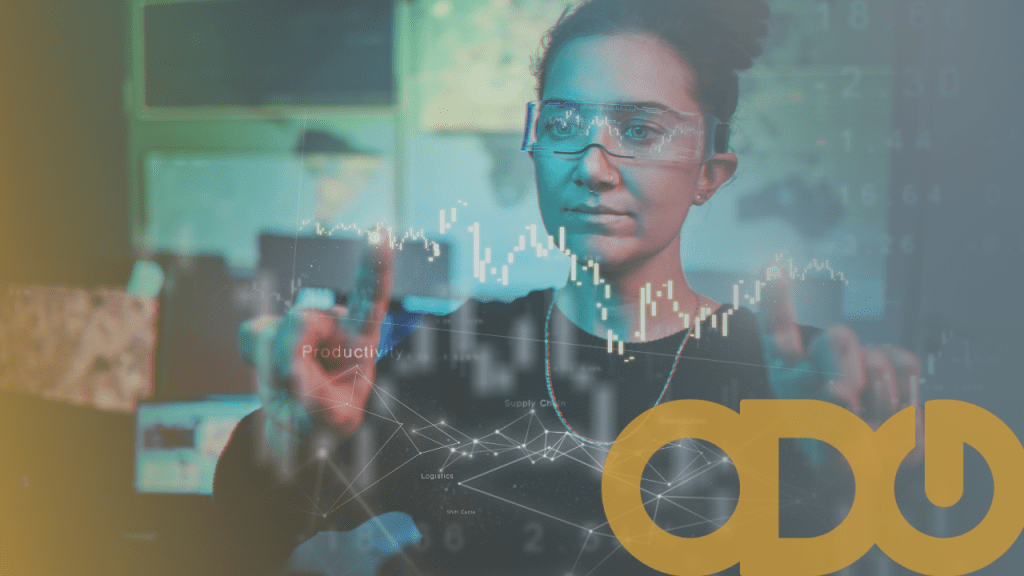OpenAI and Microsoft, two titans in the tech industry, are working together in a complex partnership to shape the future of artificial intelligence. As they navigate AI research and development, their collaboration highlights the challenges and opportunities in the overlap of technology and ethics.
This article delves into the recent controversies at OpenAI, focusing on former CEO Sam Altman’s recent dismissal. It will also examine its potential impact on the AI job market, foreseeing the possibility of OpenAI employees departing. This, in turn, might spark intense competition among rival companies eager to secure the skills of top-tier AI professionals.
OpenAI’s Leadership Dynamics, Corporate Demands, and the CEO’s Resurgence
Amidst a controversial period for OpenAI, the creator of ChatGPT, a series of events involving Altman have added to the chaos. Let’s delve into the unfolding narrative to understand how these developments have transpired.
OpenAI’s recent turmoil saw the dismissal and subsequent return of CEO Sam Altman, shaping a narrative of organizational upheaval. The saga began with Altman stepping down as CEO, citing concerns about communication transparency with the board.
Mira Murati, the company’s CTO, assumed the role of interim CEO, while board chairman Greg Brockman resigned but retained his position within the company.
The unfolding events triggered a series of reactions:
- COO Brad Lightcap informed employees of Altman’s dismissal, leading to three senior researchers resigning.
- Company investors and employees rallied for Altman’s reinstatement, culminating in a final demand from 667 OpenAI employees urging the board’s resignation or facing a staff exodus to Altman’s new project at Microsoft.
In a surprising turn, Microsoft’s CEO, Satya Nadella, announced on X that Altman and colleagues would lead a new advanced AI research team at Microsoft. Altman’s cryptic remark, “The mission continues,” added intrigue. The saga climaxed with Altman’s return to OpenAI as CEO, promising a collaborative process for organizational details.
Shortly after being ousted, the previously dismissed CEO of OpenAI, Altman, is making a surprising return to lead the artificial intelligence lab. In a message to staff, Altman expressed excitement about OpenAI’s future, emphasizing the importance of governance reforms.
With leadership stabilized and key positions reinstated, including Mira Murati as CTO and Greg Brockman as President, Altman’s return signals a renewed focus on the company’s mission of developing beneficial AI.¹
Related Reading: Out Of Goodbyes: 8 Key Reasons Why Employees Leave
Implications in the Future of AI Research and Technology
The recent events at OpenAI have prompted considerations about the future of AI research and technology. Potential implications include:
Elevated Emphasis on AI Governance
Although there is no strict set of rules for AI governance, OpenAI’s recent leadership turmoil highlights key aspects like transparency, accountability, compliance, fairness, safety, and oversight. The controversies underscore the need for more robust guidelines and regulations for AI companies in AI research and development.
This is particularly crucial given the inherent risks at various stages of AI systems—from input to output—as detailed in discussions around governance, including the black-box problem, algorithmic bias, and the implications of generative AI on disinformation and content generation.
It could result in implementing more rigorous guidelines and regulations for AI companies, potentially impeding innovation’s rapid pace.
Related Reading: The Key to Leadership is to Know When to Push or Pull
Risk of Toxic Competition
Recent OpenAI developments spotlight the debate on commercial competition in the AI industry, raising concerns about a potential race to the bottom on safety and ethics. This heightened competition might tempt companies to compromise safety and ethical considerations for market dominance, risking the overall integrity of AI technologies.
These concerns are not isolated, especially given the high prevalence of cybersecurity risks, emphasizing the need for responsible data handling, privacy protection, and accountable AI systems. North America led the AI Governance Market in 2023, indicating the region’s focus on addressing these issues.²
Globally, the AI governance market size, valued at USD 124.3 million in 2022, is projected to grow at a robust CAGR of 35.6% from 2023 to 2030.³
These statistics underscore the growing emphasis on AI governance and the recognition of the need for robust systems to track & assess AI system performance, identify potential biases or risks, and continuously improve ethical AI governance over time.
Potential Adverse Effects on Partnerships
OpenAI has established crucial partnerships with various companies, and one notable collaboration is with McDonald’s. The partnership aimed to leverage OpenAI’s advanced AI capabilities, particularly exemplified by technologies like ChatGPT, to enhance customer experiences and streamline operations within the fast-food industry.
The collaboration has been part of a broader trend where AI technologies are employed to drive efficiency and innovation in diverse sectors.
However, leadership changes and Altman’s return as CEO introduced uncertainty about existing partnerships, notably with McDonald’s. The evolving leadership may prompt a reassessment of strategic priorities, potentially influencing the goals of collaborations. Operational adjustments, including timelines and resource allocation changes, might follow, impacting the trajectory of ongoing initiatives.
Furthermore, effective communication and collaboration, vital for successful partnerships, may undergo reevaluation amid the internal turmoil. The renewed leadership’s vision could influence the speed of innovation in AI technologies, which is crucial for diverse industries.
As OpenAI adapts under its renewed leadership, the nature and extent of these impacts on collaborations will unfold, shaping the organization’s future dynamics.
Increased Scrutiny for AI Companies
The events at OpenAI may lead to heightened scrutiny for other AI companies, particularly those with substantial investments or engaged in groundbreaking AI projects. This could usher in a more demanding environment for AI startups and researchers, introducing elevated expectations and increased regulatory scrutiny.
For instance, investors and regulators might closely examine AI companies’ governance structures, ethical considerations, and overall practices, fostering a climate of increased accountability and responsibility across the industry. This increased scrutiny aims to ensure that AI advancements align with ethical standards and meet the expectations of both investors and the broader community.
Opportunity for Other AI Labs
On the other hand, recent developments might allow other AI laboratories to increase their influence and prominence in the industry. This could lead to innovative partnerships, shared insights, and accelerated developments that contribute to the overall growth of the AI landscape.
Read More: From Algorithms to Art: Exploring the Creative Applications of AI
Pioneering Progress in AI: Altman’s Impact
Altman is a highly sought-after figure in the AI landscape and played a crucial role in forming OpenAI’s 2019 partnership with Microsoft. His leadership brought forth ChatGPT, a groundbreaking technology that has humanized software and left a lasting mark on the AI industry.
The technology introduced by OpenAI under Altman’s guidance has far-reaching implications across industries, from driverless cars to finance, education, journalism, art, and music.
Microsoft’s strategic ties with Altman and OpenAI provide a significant advantage over competitors. The collaboration has proven mutually beneficial, with OpenAI relying on Microsoft’s Azure cloud computing infrastructure while Microsoft gains credibility and developer support through its association with the Silicon Valley startup.
This partnership sets a standard for AI development, with OpenAI’s technology becoming a benchmark for developers. Microsoft aims to leverage this standard to maintain its competitive edge against rivals like Google and Anthropic, particularly by aligning OpenAI standards with the use of Azure, thereby boosting growth in Microsoft’s cloud computing division.
Related Reading: From Algorithms to Art: Exploring the Creative Applications of AI
Striking a Delicate Balance
OpenAI faces a fundamental disagreement on AI progression: those advocating for swift advances and others urging caution due to potential risks. Despite being a strong proponent of regulations, Altman transformed OpenAI’s profitable branch into a $90 billion company.
While both achievements are possible, OpenAI’s unique structure, a non-profit overseeing a for-profit entity, aims to prevent AI from causing harm. However, the unfolding controversies at OpenAI risk disturbing this balance.
Shortly, we might depend on Microsoft, a global powerhouse, to guarantee ethical AI use, ensuring it is harnessed for positive purposes rather than harmful ones.
References
1 OpenAI. “Sam Altman Returns as CEO, OpenAI Has a New Initial Board.” 29 November 2023, https://openai.com/blog/sam-altman-returns-as-ceo-openai-has-a-new-initial-board.
2 Global Market Insights. “AI Governance Market Size – By Component (Solution [Platform, Software Tools], Services [Consulting, Integration, Support & Maintenance]), By Deployment Model (Cloud, On-premises), By Organization Size (Large Enterprise, SMEs), Application & Forecast, 2023 – 2032.” Published Date: Jun 2023, https://www.gminsights.com/industry-analysis/ai-governance-market.
3 Grand View Research. “AI Governance Market Size, Share & Analysis Report, 2030.” Grand View Research, www.grandviewresearch.com/industry-analysis/ai-governance-market-report.




